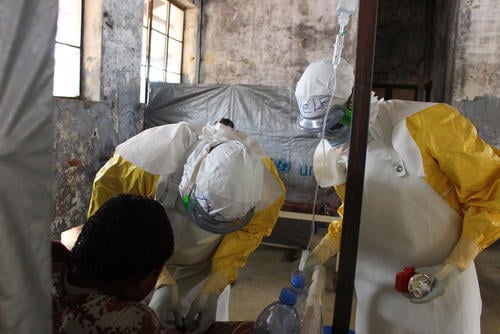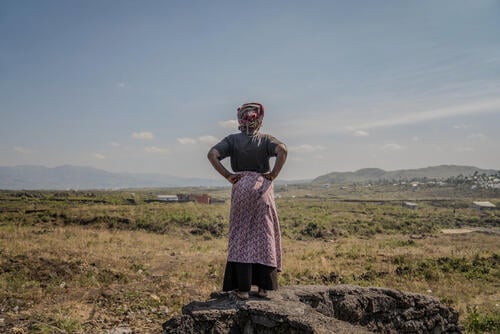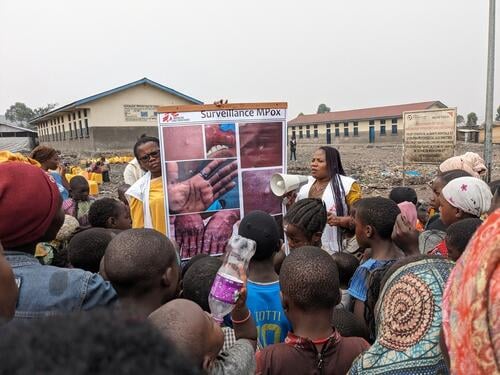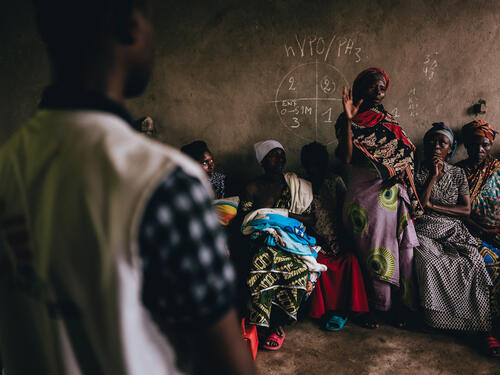Paris – An observational study conducted by Epicentre, Médecins Sans Frontières’ (MSF) medical research and epidemiology centre, the results of which are published in The Lancet Infectious Diseaseshttps://www.thelancet.com/journals/lanXXX/article/PIIS1473-3099(23)00819-8/fulltext, shows for the first time that vaccination can halve mortality among people infected by Ebola.
Conducted in collaboration with the Institut National de Recherche Biomédicale (INRB) and the Ministry of Health of the Democratic Republic of Congo (DRC), the study analysed data collected during the 10th Ebola epidemic in the DRC.
The results revealed that of the 2,279 confirmed Ebola patients admitted to an Ebola health facility between 27 July 2018 and 27 April 2020, the risk of dying was 56 per cent among unvaccinated patients but fell to 25 per cent for those who had received the vaccine. This reduction in mortality applied to all patients, regardless of age or gender.
Vaccination after exposure to a person infected with Ebola virus disease, even when administered shortly before the onset of symptoms, still confers significant protection against death.Rebecca Coulborn, epidemiologist at Epicentre
This new study, funded by MSF, focused on the rVSVΔG-ZEBOV-GP vaccine, the only Ebola vaccine recommended for use during an epidemic. Designed to be administered in a single dose, the vaccine is recommended primarily for ring vaccination - a strategy to inhibit the spread of a disease by vaccinating those who are at high risk of exposure during epidemics.
This strategy involves vaccinating contacts (people who have had contact with an individual with confirmed Ebola virus disease), contacts of these contacts, and healthcare/frontline workers.
A phase three clinical trial conducted in Guinea found that the rVSVΔG-ZEBOV-GP vaccine greatly protects against Ebola virus diseasehttps://www.thelancet.com/journals/lancet/article/PIIS0140-6736(16)32621-6/fulltext. Nevertheless, some people, despite being vaccinated for more than 10 days, the period considered sufficient to develop immunity, still got infected with Ebola virus disease during the 10th Ebola epidemic in the DRC.
This underscores the importance of describing not only the vaccine’s effectiveness against infection, but also its impact on mortality.
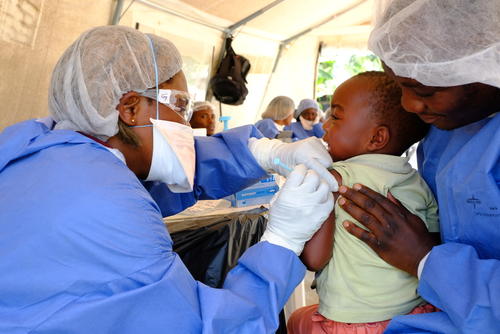
While the goal is to vaccinate people as early as possible during outbreaks, prior to exposure to Ebola virus disease, the results of the Epicentre study show that the vaccine protects against the risk of death from Ebola infection even when people are vaccinated late, i.e. after having been exposed to Ebola virus disease. In addition, no antagonistic effect between vaccination and treatment against Ebola was observed in this study.
“Vaccination after exposure to a person infected with Ebola virus disease, even when administered shortly before the onset of symptoms, still confers significant protection against death,” says Rebecca Coulborn, epidemiologist at Epicentre.
“The reduced risk of death due to vaccination is in addition to the reduction due to Ebola-specific treatment, regardless of the delay before treatment.”
This study provides further evidence of the importance of vaccination against Ebola during the epidemics that regularly occur in sub-Saharan Africa. These are most often caused by the Zaire Ebola virus species, which is associated with high mortality. Since 2019, two vaccines, rVSVΔG-ZEBOV-GP and Ad26.ZEBOV/MVA-BN-Filo, have obtained WHO pre-qualification against this strain.
“In addition to the direct benefit, our results allow us to consider combining vaccination and treatment of patients who have been in direct contact with a person with confirmed Ebola virus disease in order to reduce the risk of illness and death,” says Etienne Gignoux, director of Epicentre's Epidemiology and Training Department.



